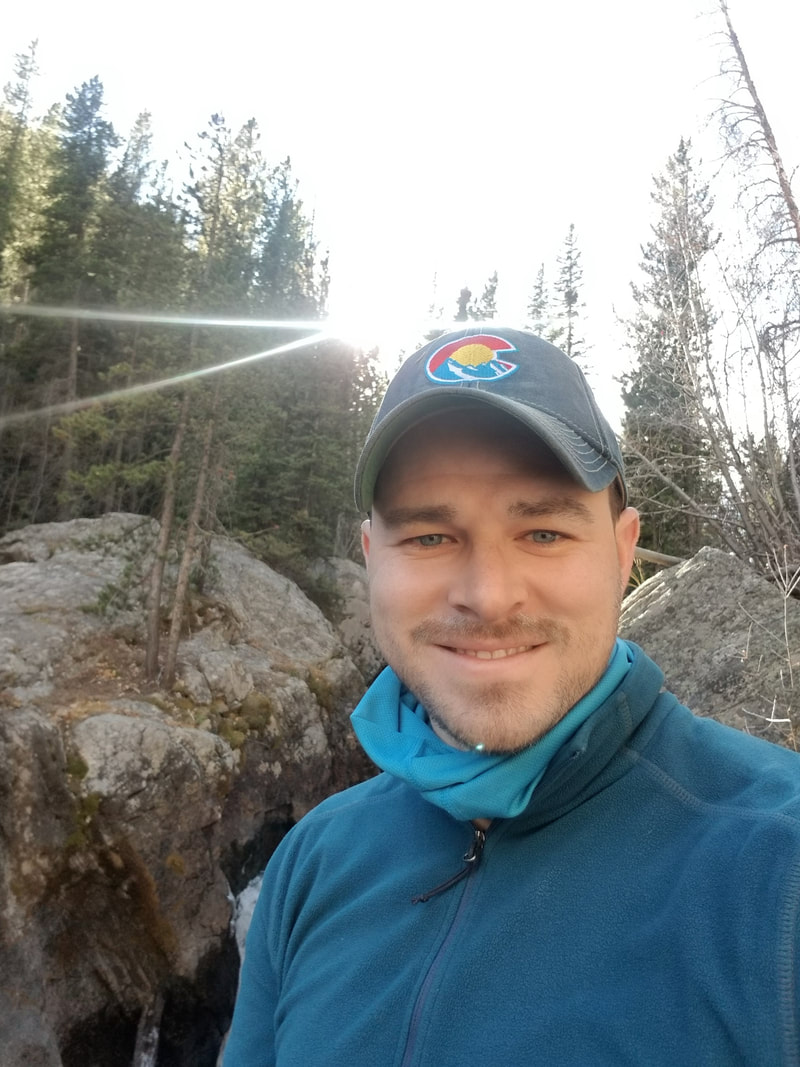As many others have noted, ecohydrology is a “big tent” term that incorporates many disciplines and varied approaches. To me, ecohydrology is fundamentally about understanding the interactions between ecosystems, especially plants, and the water cycle. I advocate that the tent of ecohydrology should remain large and incorporate new, complementary perspectives as the field evolves. This openness provides a necessary interdisciplinarity that will lead to unique and more efficient understandings of the systems that we, as ecohydrologists, study.
What are your undergraduate and graduate degrees in?
I received my B.S. in Environmental Geosciences from Texas A&M University and both my M.S. and Ph.D. in Hydrology from the Colorado School of Mines.
How did you arrive at working in/thinking about ecohydrology?
When I began my undergraduate education, I had just finished a year in East Africa that motivated my interests in environmental issues and water resources, specifically. During undergraduate research, these interests evolved into a project on the impacts of land use/land cover change on hydrology and flooding. As I entered grad school, I continued these interests in landscape disturbance and hydrology as I began working on a project examining the ecohydrological impacts of wildfire on the water budget partitioning (though I only became familiar with the term “ecohydrology” after beginning this project). As I completed the wildfire work, my funding sources changed, and I have worked more in urban areas from the end of my graduate research into my postdoc appointment. Specifically, my work has examined how climate change, land cover change, and urban redevelopment influence outdoor water use and how evolving urban landscapes influence water-heat-vegetation interactions. Though these interests are varied, I now see them connected through the umbrella of ecohydrology – how plants and water interact across changing landscapes through time.
What do you see as an important emerging area of ecohydrology?
Hydrology itself has evolved over the last few decades to include more focus on human components of the water cycle (i.e., the socio-hydrology paradigm and a greater focus on urban areas). Though fundamental understandings in ecohydrology in “natural” (i.e., non-urban) environments are still essential to pursue as research questions, I believe there is room for ecohydrology to begin to incorporate more applied research by incorporating human systems and moving more into urban study sites. Much of my research occurs in human-altered landscapes, and the alterations of these landscapes can fundamentally change the ecohydrological behavior of these systems. In the same way, the function of these systems may fundamentally change the human interactions with them (e.g., more dense urban development may reduce evapotranspiration and intensify urban heat islands, affecting human health and comfort). Finally, a focus on ecohydrology in urban systems, due to urban heat islands, can help us understand what to expect in future (warmer) climates and how climate change may alter ecohydrology in non-urban landscapes.
Do you have a favorite ecohydrology paper? Describe/explain.
There are almost too many to pick from, but I will highlight one of my favorites from some friends and colleagues that hits on some of my favorite topics (urban irrigation, vegetation, climate patterns, remote sensing, and creative big data integration):
Quesnel, K. J., Ajami, N., & Marx, A. (2019). Shifting landscapes: Decoupled urban irrigation and greenness patterns during severe drought. Environmental Research Letters, 14(6). https://doi.org/10.1088/1748-9326/ab20d4
This paper presents exciting insights into how irrigated urban vegetation behaves during drought and demonstrates that climate patterns more strongly control the greenness of urban vegetation than does irrigation water use.
What do you do for fun (apart from ecohydrology)?
When I am not working, I like to spend time hanging out with my dog, Gus. I enjoy many active and outdoor recreational activities including hiking, camping, skiing, swimming, running, and working out. I enjoy baking and reading, and (in non-COVID times) I enjoy visiting breweries and coffee shops.

 RSS Feed
RSS Feed